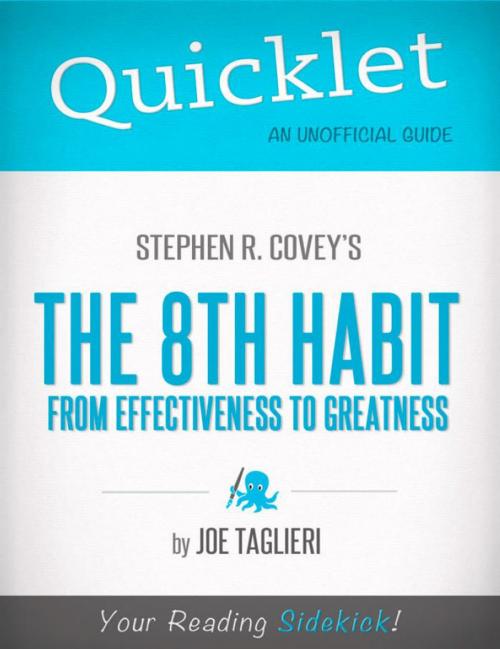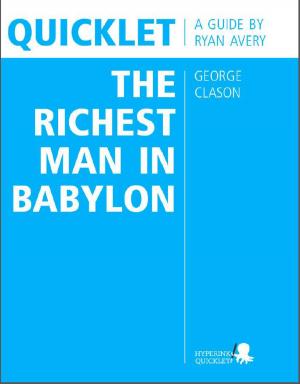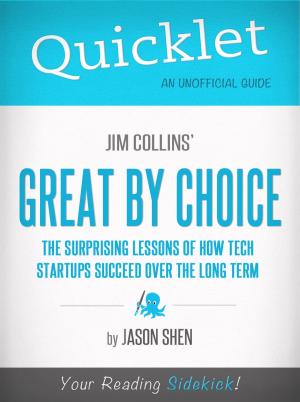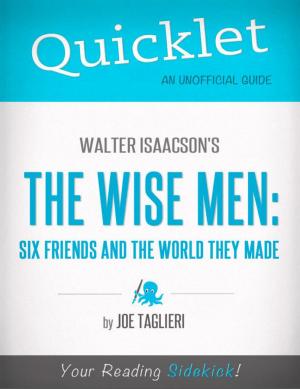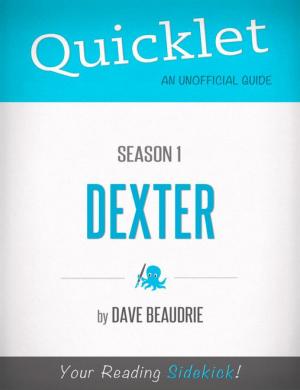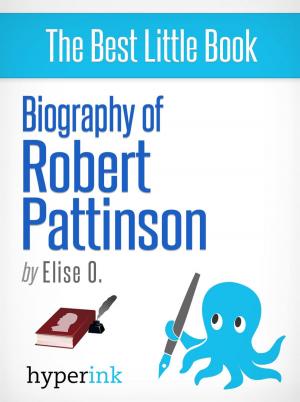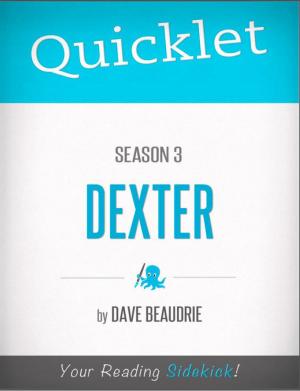Quicklet on Stephen R. Covey's The 8th Habit: From Effectiveness to Greatness (CliffsNotes-like Book Summary): Chapter-By-Chapter Commentary & Summary
Biography & Memoir, Reference, Fiction & Literature, Literary Theory & Criticism, Nonfiction, Health & Well Being, Self Help, Self Improvement| Author: | Joseph Taglieri | ISBN: | 9781614649878 |
| Publisher: | Hyperink | Publication: | February 24, 2012 |
| Imprint: | Hyperink - The 8th Habit Quicklet | Language: | English |
| Author: | Joseph Taglieri |
| ISBN: | 9781614649878 |
| Publisher: | Hyperink |
| Publication: | February 24, 2012 |
| Imprint: | Hyperink - The 8th Habit Quicklet |
| Language: | English |
ABOUT THE BOOK
Published in 2004, Stephen R. Covey’s The 8th Habit: From Effectiveness to Greatness builds upon the his widely read The 7 Habits of Highly Effective People that was published 15 years earlier. The author expands his philosophy for being effective and successful in professional and personal endeavors to crossing the threshold into the realm of genius and steadfast piece of mind. The 8th Habit was designed to be a guide for today’s “knowledge-worker society,” which has a distinct set of dilemmas and social nuances with which industrial societies of years past did not have to contend.
The book’s front flap boils down the core concept “The crucial challenge of our world today is this: to find our voice and inspire others to find theirs. It is what Covey calls the 8th Habit.” This lofty philosophical world view applies to individuals, organizations, and the broader scope of modern humanity. As a New York Times book reviewer noted about Covey, “His premise is that most of us are battling to feel engaged and fulfilled. To achieve what we seek, we must find our ‘voice,’ a concept that has four components.” The all-important voice that serves as Covey’s conceptual cornerstone is made up of talent, passion, need, and conscience.
MEET THE AUTHOR
Joe Taglieri is a freelance journalist and musician (drum set and Latin percussion instruments) in Los Angeles. He has written on a range of subjects for a variety of publications since the 1990s. Taglieri's forte is writing about governmental and economic issues, and he has a keen interest in sports and the arts, most notably music, television and film. He holds a degree in print journalism from the University of Southern California and has studied, taught and performed via the drum set for nearly 25 years and has done the same with Latin percussion instruments such as conga and bongo drums, cajón and timbales for more than 15 years.
EXCERPT FROM THE BOOK
“The Pain” analyzed in this chapter refers to the frustration, confusion, lack of direction, and confidence, pressure, and emptiness that many professional people feel in today’s fast-paced, technology-driven workplace. Toward remedying these emotional and psychological ills, Covey provides his first explanation of the antidote that forms the crux of The 8th Habit: finding one’s voice. The chapter includes a diagram and written explanation that describes the “voice” as “unique personal significance.” It is at the central connecting point of a person’s passions and talents fulfilling a particular need presented by the world at large backed by the individual’s conscience, which Covey describes as “that still, small voice within that assures you of what is right and that prompts you to actually do it.”
ABOUT THE BOOK
Published in 2004, Stephen R. Covey’s The 8th Habit: From Effectiveness to Greatness builds upon the his widely read The 7 Habits of Highly Effective People that was published 15 years earlier. The author expands his philosophy for being effective and successful in professional and personal endeavors to crossing the threshold into the realm of genius and steadfast piece of mind. The 8th Habit was designed to be a guide for today’s “knowledge-worker society,” which has a distinct set of dilemmas and social nuances with which industrial societies of years past did not have to contend.
The book’s front flap boils down the core concept “The crucial challenge of our world today is this: to find our voice and inspire others to find theirs. It is what Covey calls the 8th Habit.” This lofty philosophical world view applies to individuals, organizations, and the broader scope of modern humanity. As a New York Times book reviewer noted about Covey, “His premise is that most of us are battling to feel engaged and fulfilled. To achieve what we seek, we must find our ‘voice,’ a concept that has four components.” The all-important voice that serves as Covey’s conceptual cornerstone is made up of talent, passion, need, and conscience.
MEET THE AUTHOR
Joe Taglieri is a freelance journalist and musician (drum set and Latin percussion instruments) in Los Angeles. He has written on a range of subjects for a variety of publications since the 1990s. Taglieri's forte is writing about governmental and economic issues, and he has a keen interest in sports and the arts, most notably music, television and film. He holds a degree in print journalism from the University of Southern California and has studied, taught and performed via the drum set for nearly 25 years and has done the same with Latin percussion instruments such as conga and bongo drums, cajón and timbales for more than 15 years.
EXCERPT FROM THE BOOK
“The Pain” analyzed in this chapter refers to the frustration, confusion, lack of direction, and confidence, pressure, and emptiness that many professional people feel in today’s fast-paced, technology-driven workplace. Toward remedying these emotional and psychological ills, Covey provides his first explanation of the antidote that forms the crux of The 8th Habit: finding one’s voice. The chapter includes a diagram and written explanation that describes the “voice” as “unique personal significance.” It is at the central connecting point of a person’s passions and talents fulfilling a particular need presented by the world at large backed by the individual’s conscience, which Covey describes as “that still, small voice within that assures you of what is right and that prompts you to actually do it.”
